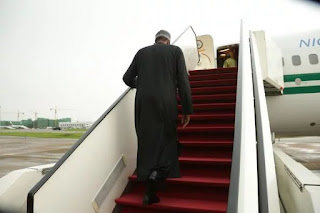By Ugochukwu Ejinkeonye
In March 2014, while handing over to his
successor in Awka, former Anambra State Governor, Mr. Peter Obi, announced that
apart from ensuring that all salaries and allowances of public service workers
and pensioners were paid up to date, he was also leaving behind N75 billion in
“cash and investments” for the in-coming administration. In a normal country, where accountability and
responsible governance are normal expectations, where public service has not
been crudely reduced to mere organised banditry as is largely the case across Nigeria, this
should not attract any applause.
*Obi
But we live in an abnormal country where criminal accumulation and
wasteful spending have long been accepted as normal features of public service,
where public officers ensure that they empty government treasuries and erect
pyramids of debts before they leave office.
And so Mr. Obi’s rare example was widely applauded, and has been
extensively held up by several commentators to underline what decent and
conscientious public service ought to look like.
But
last week, nearly two years after he was sworn in as the Governor of Anambra
State, Mr. Willie Obiano, sought to insert a sharp pin in the balloon of public
excitement about what many have come to accept as Obi’s exemplary tenure. At a press conference in Awka, the Secretary
to the Anambra State Government (SSG), Prof Solomon Chukwulobelu, declared that
“The N75 billion [which
Obi claimed he left behind] was not there;
it was not handed over to anybody. At best it can be half-truth…In the real
sense, what the Obiano administration inherited from Obi was N9 billion cash
and N26 billion near cash.”
He explained further: “…to provide a true and fair picture of the state’s net position on
March 17, 2014, the investments handover notes ought to have captured current
liabilities and contingent liabilities also borne by the previous
administration as at the time of handover. To put this in context, the total
portfolio of inherited projects valued at approximately N185 billion was
however not captured in the breakdown of the handover notes.”
According to Prof Chukwulobelu,
out of the N185.1bn owed contractors, Mr. Obi only paid the sum of N78.9bn as
at March 2014 when he handed over to Obiano, leaving a debt of N106.2bn.
These
are indeed very weighty disclosures, and if they turn out to be true, they can
only destroy whatever value Obi’s N75 billion was expected to add to the Anambra purse.
But Obi’s media aide, Mr. Valentine
Obinenyem, has called for a public, televised debate on this contentious issue.
I think this call is important and very necessary so that Nigerians can know
exactly who is saying the truth about this matter. The accusing party should,
therefore, put together a forum where both sides can come together with their
facts and figures before television cameras to prove the truth or otherwise of
their different positions. If they demonstrate any reluctance to organise this,
a national television or civil society organisation should (as part of its
patriotic duty to Nigeria
and Nigerians) take the initiative to organise this debate right away and
invite them. Although Channels Television has done well to feature
spokespersons of the two regimes separately in its breakfast show recently,
there is need for a moderated forum where they will meet together to iron out
the differences in their individual accounts. And should any of them develop
cold feet and shun the debate, the organisers should announce the party that
absconded to Nigerians and we will then know who among the two leaders has been
doing willful damage to truth and a badge of shame would promptly be put on
him. This is how matters of this nature are usually resolved in civilised
societies.




















